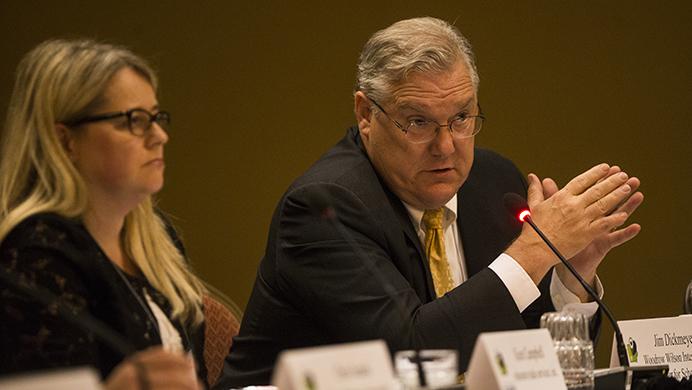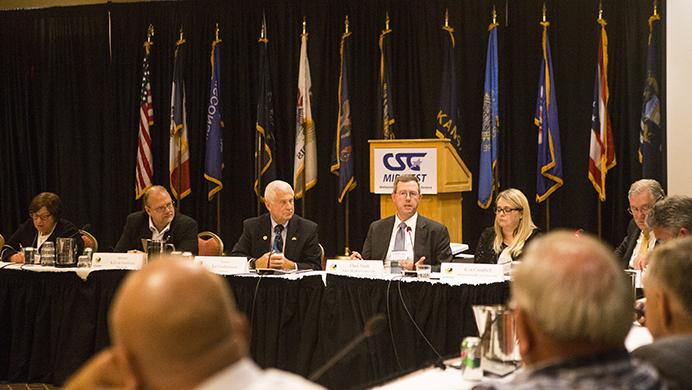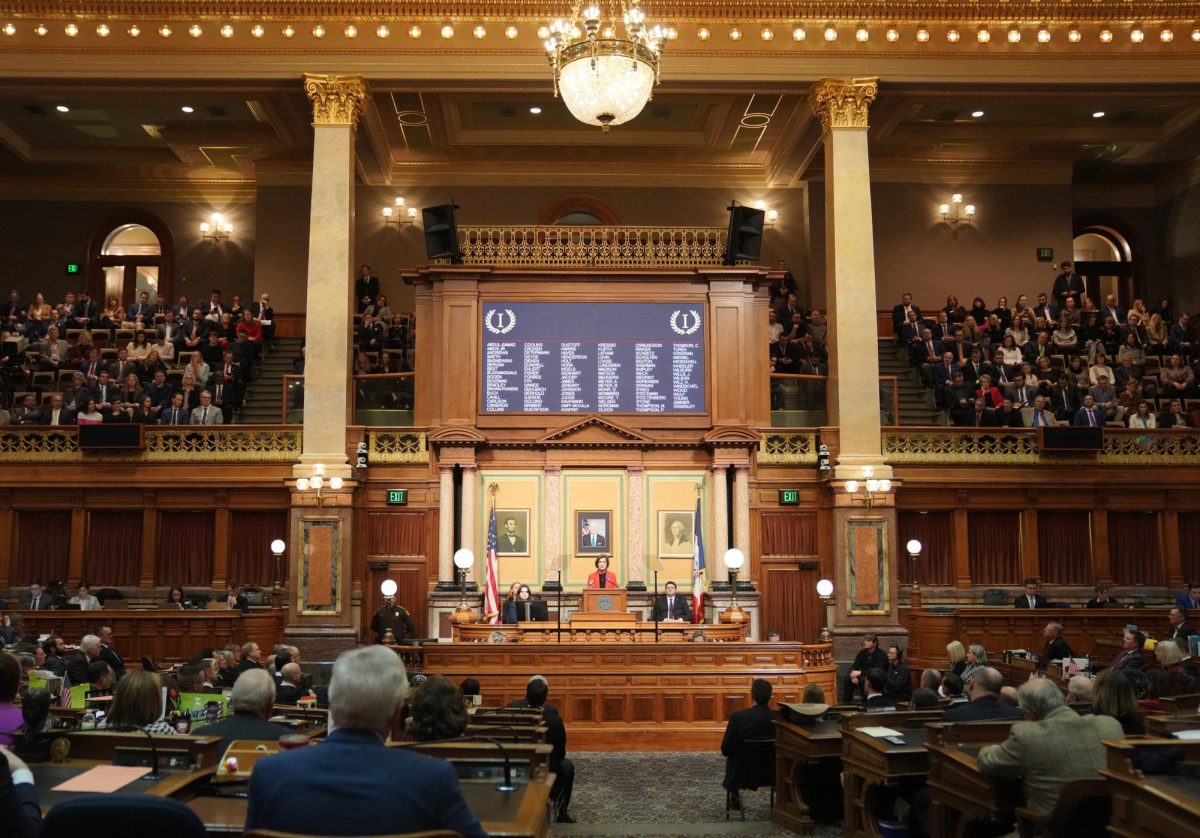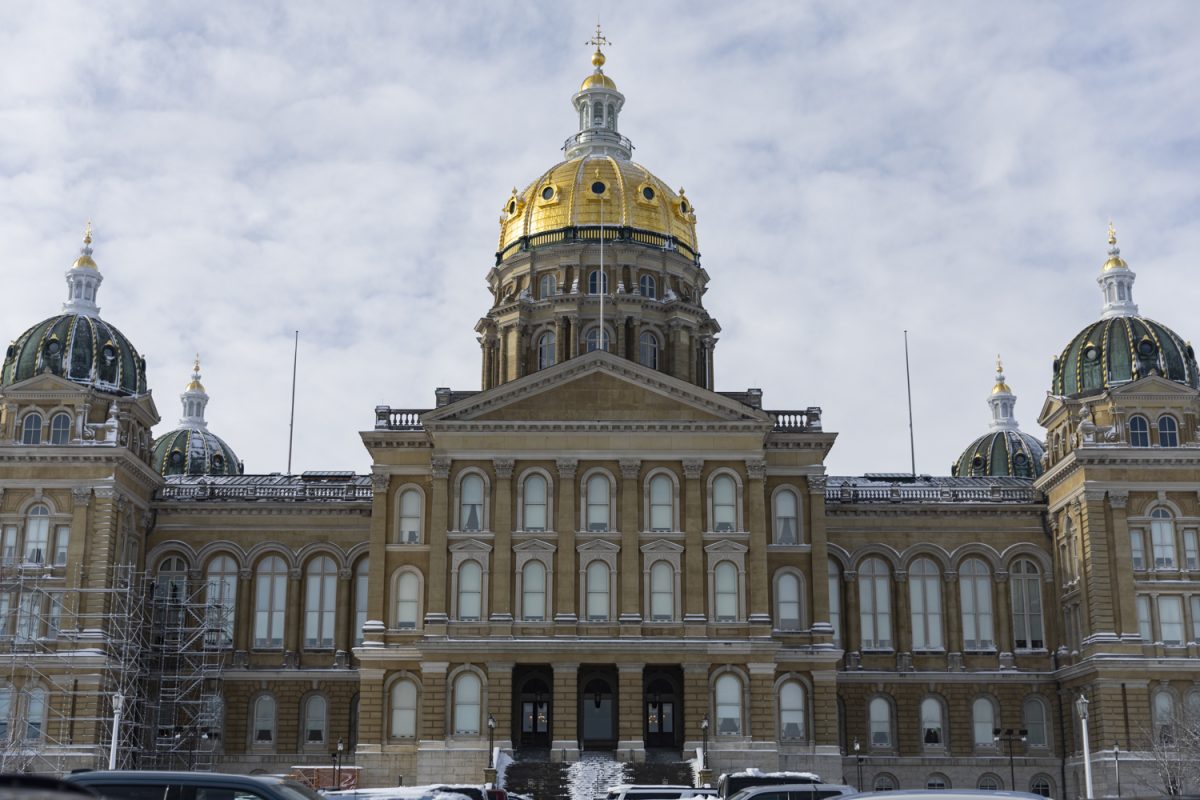Experts say renegotiating the trade agreement will be difficult. A panel gathered in Des Moines Monday to discuss the future of the agreement.
By Molly Hunter
DES MOINES — Experts who spoke at a panel at the Midwestern Legislative Conference in the state capital on Monday said a NAFTA renegotiation — which will start in August — will not be the last.
Christopher Sands, the director of the Johns Hopkins School for Advanced International Studies, said 9/11 focused everyone’s attention on the same issue, but not all of the quickly made policy decisions worked out in the long term. He fears that Trump reopening NAFTA could have similar effects.
“It’ll lead us to having a lot of experimentation, a lot of arguments, a lot of spurious claims,” Sands said. “But I almost can guarantee you NAFTA 2.0 will not be the final word. It will solve some of the issues, and then we’ll have suddenly realized there’s a whole bunch of stuff we never got done.”
Jim Dickmeyer, a North American Competitiveness fellow at the Wilson International Center for Scholars, said it’s important to understand that the renegotiation will not be easy — it’s a process.
“If people are really wanting to listen to their constituents and actually do holistic, proper change, it’s going to be complicated, and it is going to be a long time,” said Kim Campbell, the president of mkmarin trade services inc.
“Realistically, [NAFTA] is not going to change much if we have to accomplish something very fast in a short time,” Campbell said. “It’s just absolutely impossible.”

Sands said he expects renegotiations to be completed by 2021.
“The political timetable is going to be a huge impact here,” he said.
There will be a Mexican election in July 2018, then congressional elections take place in the U.S., followed by a Canadian federal election in the fall of 2019, and finally the U.S. presidential election in 2020.
Even withdrawal would not be quick and easy, Sands said, because the nature of NAFTA means it cannot just be torn up and walked away from.
“One of the things people don’t remember about NAFTA is that’s it’s not a treaty,” he said. “It was negotiated as an executive agreement … In U.S. law, it’s a congressional executive agreement because it doesn’t just affect tariffs.”
NAFTA led to congressional passage and implementation of legislation authorizing regulators and agencies to make policy adjustments consistent with the commitments laid out in the trade agreement.
“If we were to withdraw, the next step is for Congress to figure out how they want to adjust statutory authority — if at all — and for the executive branch to re-enter the rule-making process, if they do at all,” Sands said.
Thus, he said, withdrawal from NAFTA wouldn’t mean going back to zero.
“It means that we go into trench warfare, agency by agency, sector by sector, interest by interest, lobbyist by lobbyist, to figure out what the new trade rules would be,” Sands said.
Meanwhile, the consequences of such a move would be far-reaching and potentially devastating.
Campbell said the important thing about Trans-Pacific Partnership, from which Trump withdrew the U.S. earlier this year, was that it maintained the North American trade bloc, allowing Mexico, Canada, and the U.S. to remain competitive globally.
“That changed quite dramatically by the U.S. pulling out of TPP,” Campbell said. “If we don’t stick together and figure out to make [NAFTA] work as a bloc, there are sources outside of the North American space that will really come back to bite us.”










